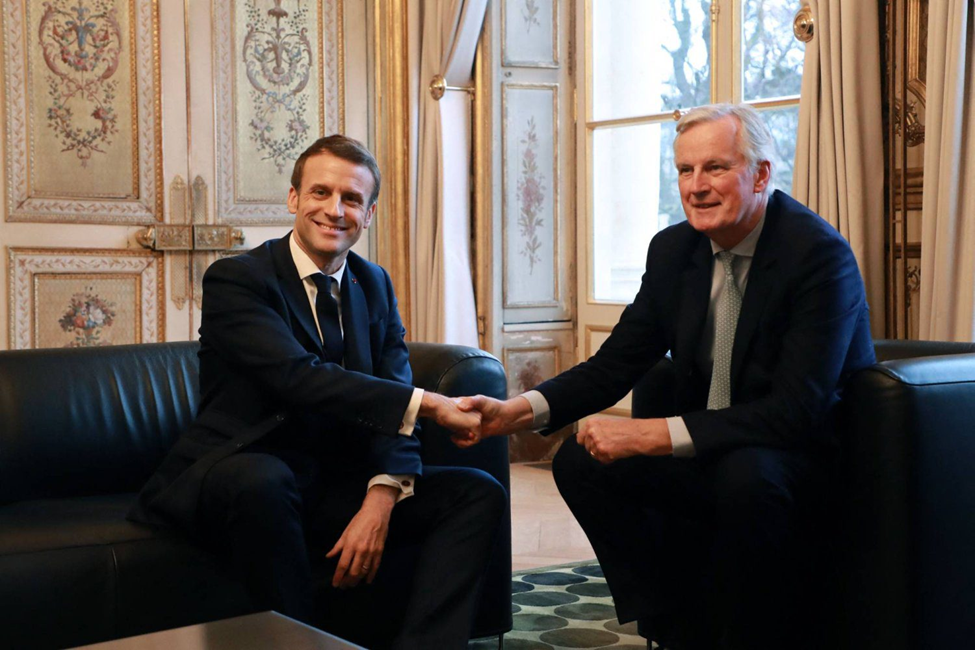On Thursday, September 5, President Macron named Michel Barnier as Prime Minister and entrusted him with the responsibility of forming the new government.
Barnier, a seasoned 72-year-old politician from the Republican Right, has served as a minister in multiple governments and as a European Commissioner. He has held key positions, including Minister for Europe and Foreign Affairs and Minister of Agriculture, and played a pivotal role in the Brexit negotiations. With his extensive experience in both France and the European Union, Barnier is a well-known figure with a solid reputation in Brussels and at home. As far as I judge, his appointment seems, in part, to be a reassuring signal to European circles concerned about the instability and uncertainty in France, subtly asking for their patience.
In the Republican Party, Barnier ranks above the second-tier figures but hasn’t fully reached the stature of a first-tier leader. His commitment to the European project runs deep, and unlike many Parisian elites, he has a strong understanding of public opinion in the provinces. A master of negotiations, Barnier is culturally conservative, but he also values the significance of robust social policies.
Barnier’s appointment letter tasked him with rallying as many political currents as possible behind his government. While anything can happen in France, it’s likely that his government won’t feature figures from the left-wing coalition or the far right. The left-wing bloc is clearly opposed to supporting Barnier and is intent on bringing his government down. This leaves Marine Le Pen’s party holding the key to his government’s survival, as they have stated they will decide their stance after hearing the government’s policy statement. Barnier’s challenge, then, lies in securing Le Pen’s party’s backing without losing the center-left.
The situation is still fluid. This president, in particular, has a history of ruling with a close-knit group of advisors, often intervening in all aspects of governance. However, his parliamentary support has significantly weakened. The centrist bloc, once his primary backers before the National Assembly’s dissolution, is now frustrated with his decision to dissolve the previous parliament. Many of the bloc’s leaders are also focused on the next presidential election, whether it happens on schedule or earlier.
Barnier’s support base is relatively small, with the Republican Right holding just 47 seats. The center bloc has 163 seats, and with a majority requiring 289, the next government will fall short of an absolute majority. Whether Barnier can secure full support from all his party’s members remains uncertain. The critical question is whether there is a majority capable of toppling his government. As mentioned, Marine Le Pen’s party holds the decisive leverage, with the center-left playing a secondary role, given their disdain for Macron’s outreach toward right-wing groups. There’s also a chance the center-right and Republican Right could abandon Barnier for either minor or substantial reasons.
The dynamics between Macron and the prime minister remain uncertain. The president has a track record of ruling unilaterally and rapidly oscillating between extremes. It is unclear who will dominate the appointment of key ministers, particularly those in finance, interior, and justice. While the president is expected to appoint the foreign affairs and defense ministers, or at the very least, retain veto power over Barnier’s selections, the overall balance of power in these appointments remains to be seen.
It is clear that both Macron and Barnier are committed to the European project and prioritize the management and oversight of the state’s finances, including upholding Macron’s reforms, particularly the contentious pension law. What remains uncertain is the president’s approach to immigration legislation and how extensively he might cater to the far right—an appeasement that might be short-lived and could lead to divisions within the centrist bloc.
Le Pen’s party has made its demands clear: reforming the electoral law to implement a proportional list system, adopting a stringent stance on immigration, and enhancing French citizens’ purchasing power. It’s evident that it is unlikely to achieve all its demands, particularly concerning the latter.
How did we arrive at this predicament? A situation where both the president and the prime minister are weak, where the prime minister comes from the smallest parliamentary bloc and implements unpopular policies, and where the political landscape is dominated by Marine Le Pen’s party, which, despite the consensus to exclude it, ultimately decides the fate of the government?
It is the collective pursuit of individual gain that has resulted in this outcome.
The president foresaw the need for austerity and dissolved the National Assembly, calling for new elections with the dual goal of either gaining a renewed mandate before the budget was approved or letting the far right take control, hoping they would stumble and become entangled in debt and unpopularity. What he did not anticipate was the left-wing parties’ ability to unite and establish a joint governing program and form a coalition, disrupting his intended plans.
On the other hand, both the far right and the left pursued governance plans that bordered on pure folly. While the center bloc’s agenda was unrealistic, its overly optimistic promises pale in comparison to the absurdity of others. What unites the extremists on both sides is their embrace of policies centred on drastically increasing spending in a country already grappling with a severe debt crisis. Both parties are also determined to repeal President Macron’s pension law (which raised the retirement age) to control pension spending. Since these two blocs together hold an absolute majority, they could have joined forces to dismantle most of Macron’s reforms before inevitably turning on each other and bringing down each other’s government.
The leftist coalition had two possible routes: either revise its platform to seek common ground with the center bloc or stick to it, despite its impracticality. The coalition’s dominant party, La France Insoumise, chose the latter, arguing that their program was a commitment made to voters and that no aspect could be changed. This so-called idealism hid a deeper objective: to create a governance crisis that would push the president to resign and trigger early presidential elections—at a time favorable to the left-center, which was not yet prepared to contest a presidential race.
The Socialist Party found itself torn between the chance to return to power and the reality of supporting a program they knew was flawed. Ultimately, they aligned with La France Insoumise’s stance, declaring that any alliance with the unpopular president would be an unforgivable betrayal in the eyes of voters. Yet, some commentators noted that the true motivation was more practical: several Socialist figures could not win their districts without the votes of La France Insoumise supporters, a factor that shaped their decision. Though the party revisited these choices from time to time, internal discord remained, and the general outlook stayed the same.
Understanding the president’s calculations is challenging. The left’s stance arguably played into his hands, giving him a reason to block their attempt to form a government. However, this denial has led to accusations of undermining democracy, attempting to bypass the election outcome, and pushing forward with policies that the voters decisively opposed. Critics argue that his refusal stems from authoritarian inclinations rather than objective reasoning. Some believe he should have appointed the leftist New Popular Front candidate to lead the government, allowing parliament to withdraw confidence if necessary. This criticism is countered, though, by the president’s concern about a potential secret deal between the far right and the left aimed at overturning his reforms.
The left aligned itself with La France Insoumise’s hardline stance, rejecting any compromises and effectively ceding control of the government to Marine Le Pen’s party and the Republican Right. The centrist coalition is left with no choice but to seek Marine Le Pen’s tacit endorsement and a commitment from her to support the new government. Recently, Marine Le Pen wielded her influence by blocking two prime ministerial appointments, derailing their prospects and highlighting the shifting balance of power.
We describe the scene as ambiguous due to several uncertainties. First, it’s unclear whether Macron will allow Barnier to form the government on his own and whether the eventual government will be able to craft policies that satisfy both the far right and the center-left. Second, Marine Le Pen’s non-negotiable demands and her potential interest in pushing for the president’s resignation add further complexity. Third, while both Le Pen and Mélenchon, along with other members of the center bloc, are eager to see the president ousted, they are aware that there’s no clear successor, as many who have served during his term have their eyes on the presidency.












